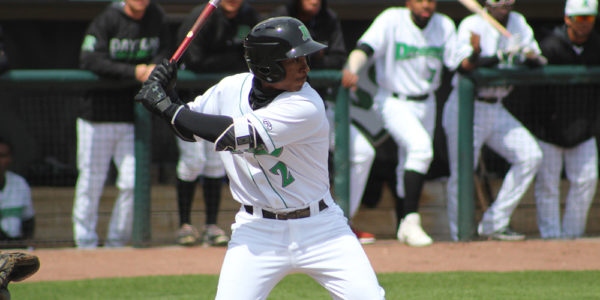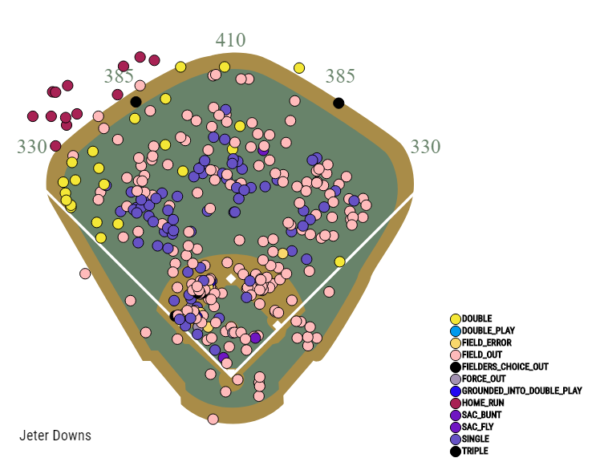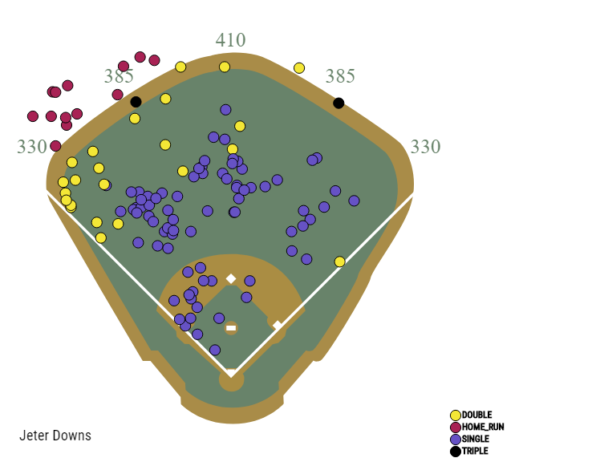
Next up in the Top 100 prospect countdown is one of the newest prospects in the organization who was acquired for a fan favorite in Yasiel Puig.
——
Previously
——
I’ve included Future Value (FV) grades and risks for the Top 50 prospects. For example, if a guy gets a “50 low,” he has a really good chance to be an average player at his position. If a guy gets a “55 high,” there’s a good chance he won’t reach that ceiling, but the potential is there. I tend to give higher future values because I take ceiling into account. The grades are 20-80 (50 is average), and the risks are as follows:
- Low: Players who are usually older, have debuted, are relievers and/or have higher floors than ceilings
- Medium: Players who are a mix of younger and older, usually have higher floors
- High: Players who are usually younger with potential, but also question marks
- Extreme: Players who are younger with star potential, but a ton of question marks
This is to show what value a player might provide at the MLB level. The higher the risk, the less likely a player will reach that ceiling.
——
Editor’s Note: I am not a scout (#notascout). I am an amateur when it comes to evaluating players. I don’t claim to be a pro, I just want to pass along the information I observe/obtain to the people. Notes and comments are based on personal observation, talking to sources, reading scouting reports and watching video. For future entries in this series: All ratings in the charts below are on the standard 20-80 scouting scale, where 50 is roughly average, 80 is elite and nearly unattainable and 20 is unacceptably poor. Enjoy.
Other notes: “Role” is a realistic future role (slightly optimistic in some cases). Age is the 2019 season age for the player (June 30 is the cutoff date).
——
Rating Key
| 80 – Elite |
| 70-75 – Plus-plus |
| 60-65 – Plus |
| 55 – Above-average |
| 50 – Average |
| 45 – Fringe-average |
| 40 – Below-average |
| 30-35 – Poor |
| 20-25 – Very Poor |
——
9. Jeter Downs
| DOB: 7/27/98 | Age: 20 | Height: 5’11 | Weight: 180 | Bats: Right | Throws: Right | Position: 2B/SS |
| Tools | Now | Future |
| Hit | 35 | 55 |
| Power | 30 | 50 |
| Speed | 50 | 50 |
| Defense | 40 | 55 |
| Arm | 40 | 55 |
| FV/Risk | 55 | High |
| Type of hitter: Fly ball despite size, few ground balls, need more liners | ||
Acquired: Trade with Reds December 2018; 1st round Competitive Balance Round A (No. 32 overall) of 2017 MLB Draft, Monsignor Edward Pace HS (Fla.), $1,822,500 signing bonus
Physical description: Wiry, sneaky strong, athletic build, well-rounded
Strengths: Above-average bat speed, already elevates, developing power, advanced for age
Weaknesses: Lack of upper-level experience, might not stick at shortstop, “only” average speed
Key statistics: .257/.351/.402, 9.9 BB%, 19.7 K%, .145 ISO
Summary: Chosen nine spots after the Dodgers popped Jeren Kendall in 2017, Downs was the Reds’ competitive balance selection and got a quick assignment to Billings of the Pioneer League. He got bumped up to the Midwest League in his second professional season and handled himself pretty well. In a notoriously tough league for hitters, Downs posted some solid offensive numbers, including some surprising pop. He also stole 37 bases in 47 attempts.
Downs combines above-average bat speed with an elevated swing path to produce a high number of fly balls for a guy who looks like he’d more ground ball/line drive-oriented. He has a relatively quiet setup from the right side. He doesn’t have much of a leg kick or stride, but is still able to generate good bat speed that results in loud contact. He’s almost a little too fly ball happy, though, considering he doesn’t project to hit for much more than average power at his peak (maybe 55-grade if he continues to develop). And it’s virtually all pull-side power. He could stand to level out the swing a bit to grain some more line drives at the expense of some fly balls. But with the Dodgers’ hitting philosophy in the minors, you can see hwy they targeted Downs in trade talks with the Reds. He also displays advanced plate discipline, which should help him as he climbs the minor-league ladder.
He’s athletic enough to handle shortstop, but there are two reasons he might have to move off shortstop: His arm and his range, the former of which being a bigger issue than the latter. If he does move to the pivot, he could be an above-average defender at second base. He’ll probably stick at shortstop for the time being, but he’ll likely have to move. Some have said there’s a non-zero chance he could end up in center field, but that doesn’t seem terribly likely at this stage. As a runner, he has average speed, but don’t the 37 stolen bases fool you; Downs doesn’t project to be much of a stolen base threat at the MLB level. He might get to 10-15 stolen bases, but efficiency will be more his game.
Downs could be the Dodgers’ second baseman of the future, especially if he continues to show offensive upside he has in his first two professional seasons. If not, he could be a second-division starter or a utility infielder with pop. He should spend ample time in High-A with the Rancho Cucamonga Quakes this season.
Spray Charts


Videos
2018 Ranking: NR
2019 Location: High-A Rancho Cucamonga
ETA: 2022
Next Up: Prospect No. 8
 Dodgers Digest Los Angeles Dodgers Baseball Blog
Dodgers Digest Los Angeles Dodgers Baseball Blog